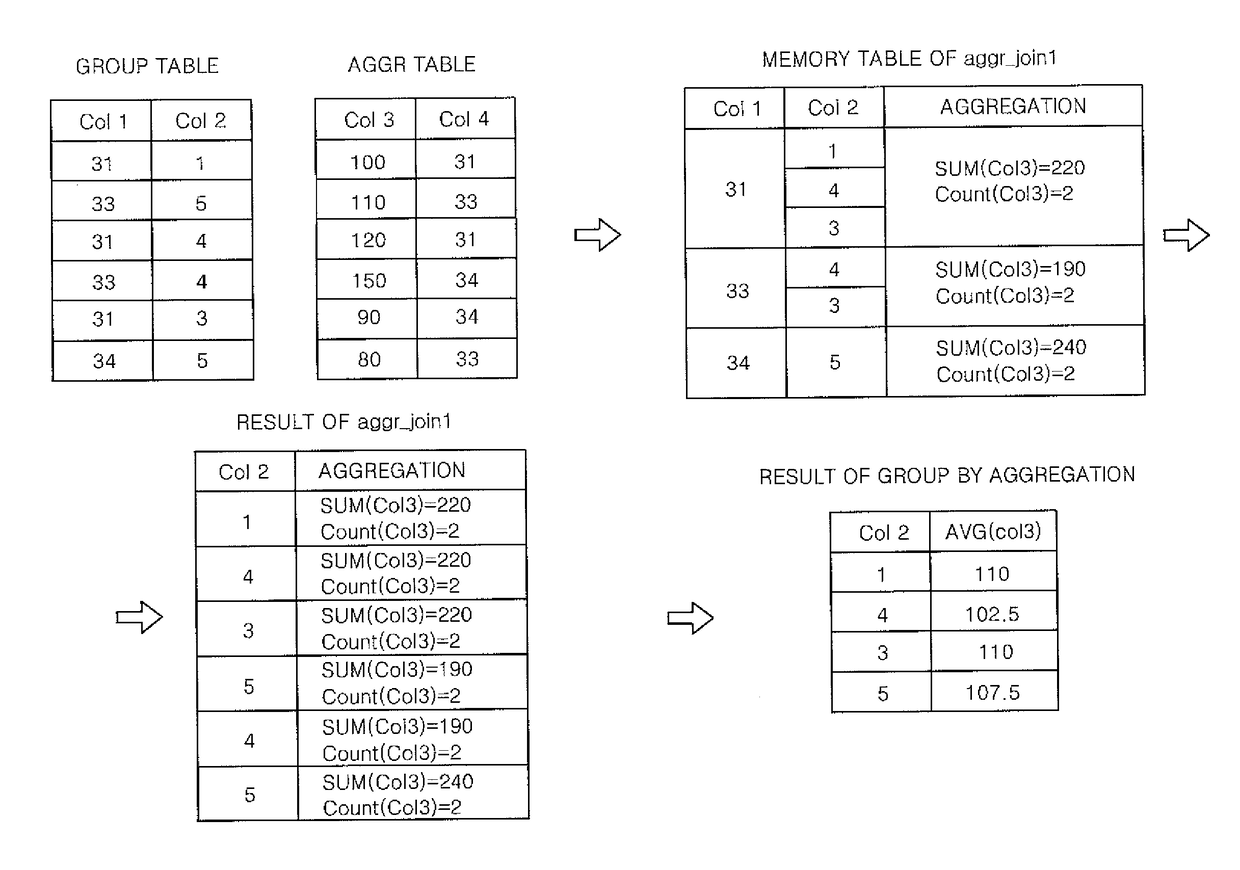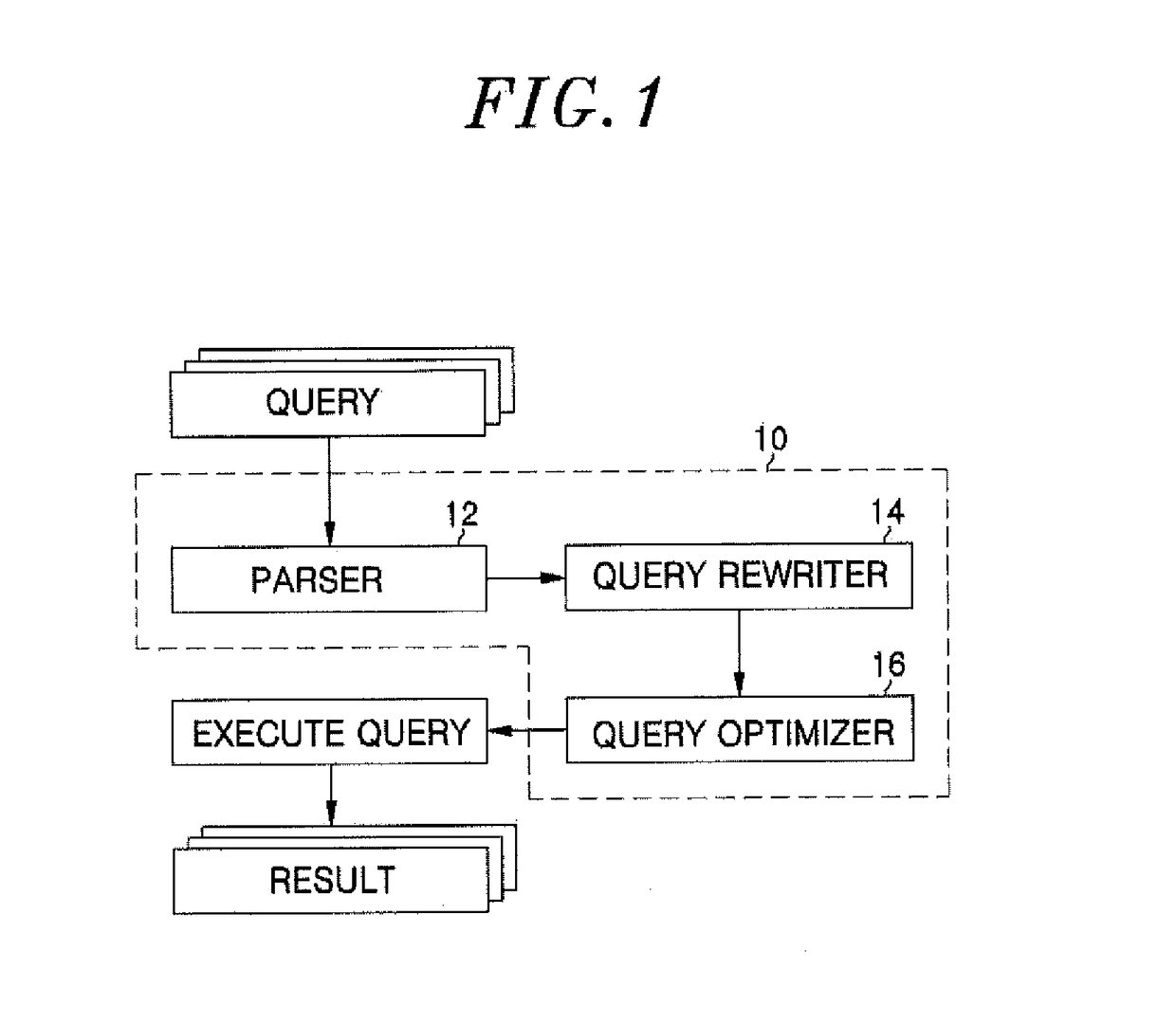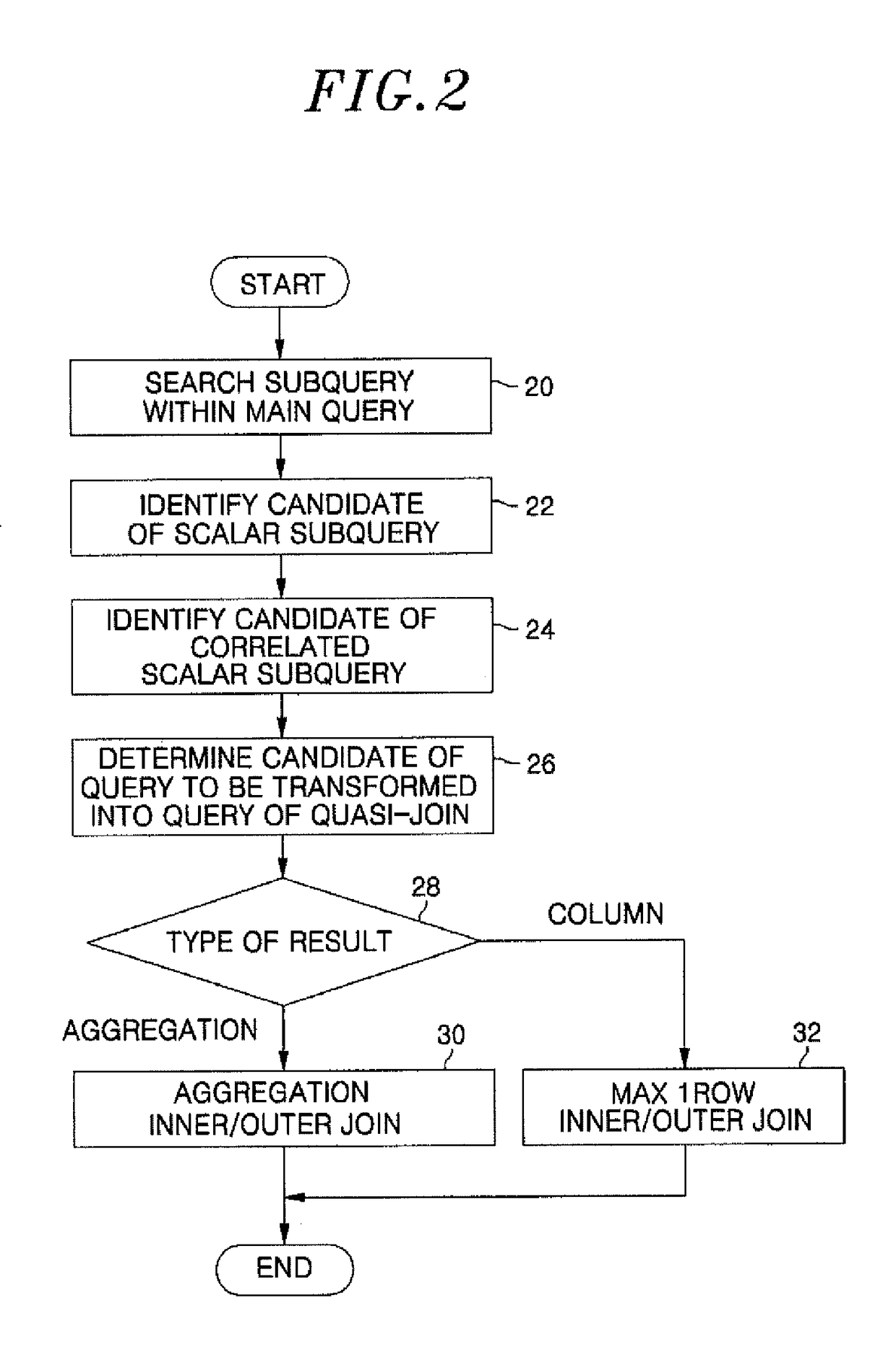Join type for optimizing database queries
a database query and type technology, applied in the field of query compilers, can solve the problems of large outputs, failure to describe how to perform unnest operations on queries,
- Summary
- Abstract
- Description
- Claims
- Application Information
AI Technical Summary
Benefits of technology
Problems solved by technology
Method used
Image
Examples
Embodiment Construction
[0042]Hereinafter, embodiments of the present invention will be described in detail with reference to the accompanying drawings.
[0043]FIG. 1 illustrates a block diagram of a query compiler 10 that is used in a database management system to which the present invention is applied. The query compiler 10 includes a parser 12, a query rewriter 14, and a query optimizer 16.
[0044]The parser 12 parses an SQL query provided to the query compiler 10 to form a structure such as a parse tree. During a parsing process, it is confirmed whether the query has a grammatical error and a semantic error, and the parsing process then proceeds to a query rewrite process. The query rewriter 14 makes a query having the parse tree structure more general to allow the query optimizer 16 to yield more query execution plans. The query optimizer 16 utilizes statistical information to generate a plurality of query execution plans from the rewritten query (revised parse tree) and selects a query execution plan hav...
PUM
 Login to View More
Login to View More Abstract
Description
Claims
Application Information
 Login to View More
Login to View More - R&D
- Intellectual Property
- Life Sciences
- Materials
- Tech Scout
- Unparalleled Data Quality
- Higher Quality Content
- 60% Fewer Hallucinations
Browse by: Latest US Patents, China's latest patents, Technical Efficacy Thesaurus, Application Domain, Technology Topic, Popular Technical Reports.
© 2025 PatSnap. All rights reserved.Legal|Privacy policy|Modern Slavery Act Transparency Statement|Sitemap|About US| Contact US: help@patsnap.com



